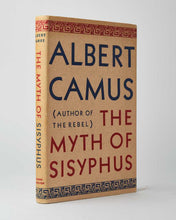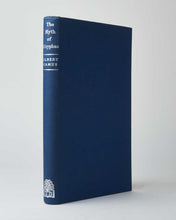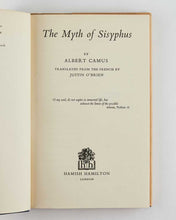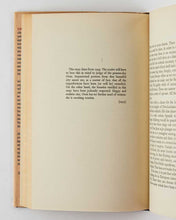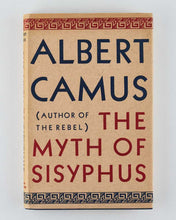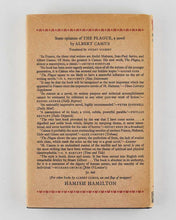
The First Edition in English
CAMUS, Albert; Justin O'BRIEN (translator). The Myth of Sisyphus London: Hamish Hamilton. 1955.
“There is but one truly serious philosophical problem, and that is suicide. Judging whether life is or is not worth living amounts to answering the fundamental question of philosophy. All the rest—whether or not the world has three dimensions, whether the mind has nine or twelve categories—comes afterwards.”
The Myth of Sisyphus, written “by a young man living in narrow exile in Paris during the bleakest early days of the Second World War” (James Wood), is a cry of revolt against passive despair. If there is no God to give meaning to our lives, we must confront the absence head-on, with something resembling joy. As with the titular Sisyphus, condemned to roll his rock uphill forever, it is a seemingly absurd proposition (“One must imagine Sisyphus happy"). Camus, moreover, spurns the tools of philosophical argumentation, of logic and reason, proceeding instead “as if religion is best countered by a rival form of belief, the belief that one cannot, must not, believe in God. […] [The work] is not a treatise but a tract, a tract aimed at evacuating God, and a promise to live by the rigour of that evacuation” (Wood).
Published in 1942, the same year as, and in some respects a companion to, the novel L’Étranger (The Stranger / The Outsider), The Myth of Sisyphus mobilises all the rhetorical skills of a literary artist (its unforgettable opening lines, quoted above, a case in point), persuading the reader to engage without prejudice or preconception. The work is appended by an essay on Franz Kafka, and the English edition includes translations of five further essays.
Still in print as a Penguin Modern Classic (where Wood’s introductory essay appears), Justin O’Brien’s translation has stood the test of time and remains the standard English version of the work.
#2123663






